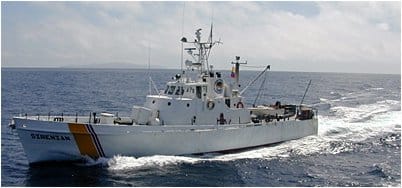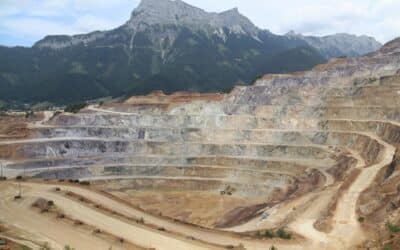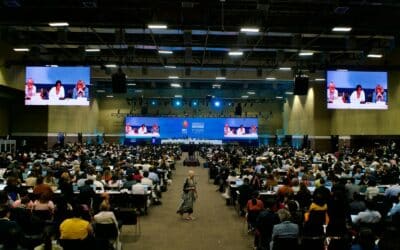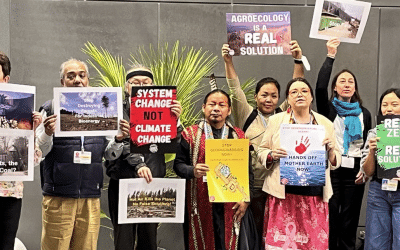by Jim Thomas (ETC Group)
As well as dealing with Monsanto in Munich this week, ETC Group has also been raising the alarm about a massive geo-engineering experiment scheduled for this month around Galapagos by Planktos Inc.
The New York Times carried a very uncritical piece about Planktos earlier in the week, which was also picked up by The Times in London and The Independent also in the UK. ETC then put out a news release pointing out that the scientists of the IPCC (UN climate science body) were about to be very critical of geo-engineering in their report and that 47 scientists writing in the journal Nature had been critical of it last week! You can read more about that here. One of the places this opened up a debate was on environmental blog Gristmill. And what a debate! Planktos Comunications director David Kubiak posted a bizarre and vitriolic attack on ETC’s news release and then went on to challenge us to an open debate.
We like the idea of an open debate. We also think Plantos should respect the precautionary principle and if they want such a debate in good faith would hold off their planned trial. Below is the response to Planktos that we have just posted to Gristmill
In response to Planktos:
On this forum David Kubiak, Planktos Communications Director, posted a blustery (and bizarre!) attack on ETC Groups recent news release about his company’s impending iron fertilization experiment in the vicinity of the Galapagos Islands. Yesterday was a busy day for ETC Group because we concluded — and won — a 13 year old lawsuit against Monsanto that has led to the rejection of Monsanto’s species-wide soybean patent. (see www.etcblog.org where we will also post this note). The trial hearing was in Munich and we’ve been busy. Below however is our response to Planktos.
Firstly, we would like to be clear to Mr Kubiak and others that these are not Mr Thomass arguments (as he characterised them). They are the position of ETC Group. There is no need to personalise this debate.
Secondly, we note that Planktoss vitriolic “rebuttal” actually sidesteps most of what was in the news release namely that UN IPCC , the most eminent body of climate scientists in the world ,overseen by governments, have decided that geo-engineering schemes – and ocean fertilisation in particular – are unproven, unlikely to work and raise serious risks. This is published today (Friday) but was leaked to the media some days ago.The same message came very clearly from a paper last week in Nature (Blain et al.). signed by 47 internationally-respected ocean scientists. It says just about everything anyone needs to know about this company that Planktos did not address these two scientific reports in its rebuttal but opted, instead, to attack paper tigers and spread invective.
Planktos also invited ETC Group to an open public debate. Of course we agree and have specific proposals to expedite this debate (see below).
Regardless, Planktos should accept the Precautionary Principle and immediately announce that it will suspend its iron fertilization trial until there is a public debate and, also, pending the results of a transparent technical evaluation of their project conducted by a panel of internationally-respected ocean scientists drawn from the IPCC and including experts from the Pacific region where the experiment is intended. If Planktos is not prepared to do this and does not recognize the Precautionary Principle, the world community should be concerned.
We propose three public debates. The first debate should take place as quickly as possible in Ecuador (which has the sovereign responsibility for the UNESCO World Heritage Site). Dr Elizabeth Bravo of Accion Ecologia can arrange this debate and can also facilitate appropriate discussions with the Ecuadorian government at the same time. It is not necessary for ETC Group to be involved in this debate, Ecuadorians are capable of attending to their own concerns. We’ll be happy to forward contact information to Planktos.
ETC Group is quite prepared to participate in the second and third debates. We propose a second debate during the UN Commission on Sustainable Development now taking place (until May 11) in New York City. If we can reach quick agreement on this, it may be possible to arrange a side-event during the CSD to which governments and civil society organizations could be invited. This would allow for a full debate. Time is short, but we are prepared to undertake organizational work for this debate. If the time frame is too short a side-event could also be arranged at the UN in New York the following week at the Permanent Forum on Indigenous issues which commences its 6th session on 14th may 2007.
Finally, we propose a debate before the UN Convention on Biological Diversity and its SBSTTA (scientific subcommittee) when it meets in Paris July 2 – 6. at that time it will be considering teh biodiversity impact of climate mitigation schemes. Again, we believe we can arrange for a side-event that will allow for the debate to be witnessed by governments and civil society.
As to the points which Planktos unhelpfully characterised as deceptions. Below are some replies. As we already noted this really did not seem to address the substance of our news release.
- The reference to Galapagos came repeatedly from Planktos who launched their so-called voyage of recovery to Galapagos back in March linking it explicitly with Darwins Voyage. Indeed after reading Planktos communications for some time this forum is the first time we have seen a more precise reference of where the dumping site is intended. We are not sure if we share Planktoss view that the deeper waters of the Pacific are anemic and lifeless.
- ETC Group bears no responsibility for the Planktos website being four years out of date or using the technical word nanoparticles in a non-technical manner. It is true that Mr.Kubiak told us last week that the particles would be at around the micron scale in a telephone conversation. His comment was correctly acknowledge in our news release. He also said the company had never used the term nanoparticle which is not true. As the company’s communications officer, he should perhaps become more familiar with his own website. “Nanotechnology” is not a scare term. Many companies use the term (sometimes incorrectly as here) to exaggerate the “cutting edge” nature of their technology.
- Regarding Nuclear Fusion Cold fusion is believed to be a form of Nuclear Fusion .We merely stated that Planktos has a mirror company involved in Nuclear fusion. Its hard to see how that is a smear.. D2fusion describes their work variously as Cold Fusion Low Energy Nuclear Reactions, and Chemically Assisted Nuclear Reactions,..
- Ulf Riebesell was not the only critic of iron fertilization quoted in Nature. The forty-seven scientists who co-authored the paper under discussion went out of their way within the paper to say that their paper should not be used to justify iron fertilization schemes. On their own website they also said that they saw their finds as the end of the dream of iron fertilization. When we contacted the lead author, Stephane Blain he was particularly emphatic that they did not want geo-engineers to misleadingly use their findings to justify their case – in the way Planktos apparently have.
- It is unfair to both Dr Elizabeth Bravo (of Accion Ecologica) and Dr Paul Johnston (of Greenpeace) to characterize them as misled. Both are highly respected and very experienced environmentalists with enviable international reputations. It is also slightly ironic since Greenpeace rather claim that Planktos misled them: Planktos, having used a personal connection in Greenpeaces US office to borrow an inflatable boat , went on to portray Greenpeace as supportive of Planktos during a PR stunt in Washington DC Harbour recently. Greenpeace USA had to send threatening legal letters to have that misrepresentation removed from the Planktos website.
- ETC are glad to see that Planktos will surrender any prize money to charity.
Nonetheless Planktos own communications has very much emphasised the money that Planktos hope to make – especially to investors who have been invited to buy stock in the company. As we noted in our news release Planktos CEO Russ George has called this more of a business experiment than a scientific experiment.



